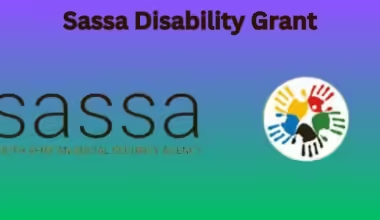
Andrea Gibson, Beloved Poet of Identity, Illness, and Inner Light, Dies at 49
Andrea Gibson, the award-winning poet and spoken word performer known for their powerful reflections on identity, love, mortality, and resilience, has passed away at the age of 49. Their death was announced Monday by their wife, Megan Falley, who shared that Gibson died peacefully at home in Boulder, Colorado, surrounded by love and by life.
“Andrea left this world held by their wife, four ex-girlfriends, their parents, dozens of close friends, and their three dogs,” Falley’s heartfelt statement read. It was a moment, she noted, as poetic as Andrea’s work an ending filled with presence, chosen family, and unflinching authenticity.
Gibson had been living with terminal ovarian cancer for nearly four years, a journey they chronicled through intimate poems and public reflections that offered comfort and courage to countless others. Their openness about death never felt like fear instead, it felt like awe, curiosity, and a kind of sacred reverence.
Their final years were also captured in the upcoming documentary “Come See Me in the Good Light,” which won the Festival Favorite Award at this year’s Sundance Film Festival and is set to stream this fall on Apple TV+. Directed by Ryan White and executive-produced by Tig Notaro, the film traces Gibson’s love story with Falley, their poetry, and their experience facing death with raw grace. It features an original song co-written by Gibson, Sara Bareilles, and Brandi Carlile.
At the Sundance screening in January, Gibson told the audience they never expected to live long enough to witness the film’s release. Many viewers were moved to tears. What they saw wasn’t just a documentary it was a living, breathing extension of Andrea’s voice.
A Voice for the Queer and the Quiet
Born in Maine, Gibson came out as queer and genderqueer while attending a Catholic college, where they studied creative writing. They would later write, “I am happiest on the road, when I’m not here or there — but in between.” That line became a poetic reflection of their lived experience: never bound by binaries, always moving between worlds with clarity and conviction.
When Gibson moved to Colorado in the late 1990s, they found their voice — and quickly became a pillar of the spoken word scene. Over the years, they released several books, including “Lord of the Butterflies,” “Take Me With You,” and “You Better Be Lightning.” In 2023, they were named Colorado’s poet laureate, a recognition that affirmed their power to move people across all walks of life.
Their poetry spoke directly to LGBTQ+ youth, to people navigating illness, and to anyone who had ever felt misunderstood. Their performances blended humor, heartbreak, and hope. They didn’t just read poems they opened hearts.
Words That Healed
Among the many people touched by Gibson’s poetry was Linda Williams Stay, whose son introduced her to Gibson’s work over a decade ago. That experience, she says, helped her understand her son after he came out as transgender — and deepened their bond. “Andrea saved my son’s life,” she recalled, holding back tears. “And in many ways, they helped save mine, too.”
Later, when Stay was diagnosed with cancer, Gibson’s words became a source of strength again. She invited them to speak at a pride celebration in Utah — a place where LGBTQ+ youth rarely see themselves reflected. “That visit was life-changing,” she said. “They gave queer kids in small towns something we all need — hope.”
Leaving Light Behind
Gibson continued writing poetry throughout their illness — not from a place of despair, but of transcendence. In one of their final poems, “Love Letter from the Afterlife,” they wrote:
“Dying is the opposite of leaving.
When I left my body, I did not go away.
That portal of light was not a portal to elsewhere,
but a portal to here.
I am more here than I ever was before.”
They made peace with the storm. In a 2021 piece titled “How the Worst Day of My Life Became My Best,” they wrote:
“When I realized the storm was inevitable,
I made it my medicine.”
A Legacy That Lives
Tributes have poured in from around the world from poets, activists, and artists who credit Gibson’s words with saving lives and making space for those who never felt seen.
Colorado Governor Jared Polis called Gibson “truly one of a kind,” praising their ability to “connect with the vast and diverse poetry lovers of Colorado.”
Tig Notaro, who called Gibson a longtime friend and collaborator, said the final days of their life were “painful, but deeply beautiful.” In an emotional Instagram post, she reflected on the “real human connection” that unfolded during Andrea’s final hours a connection so profound it defied explanation.
We Don’t Leave, We Transform
Andrea Gibson taught us that the end isn’t absence. It’s a transformation a return to presence in a new form. Through their poetry, they reminded us that even when the body is gone, the love, the words, and the impact remain.
They didn’t just write poems. They wrote lifelines.
And they will always be here.






